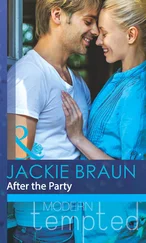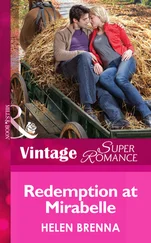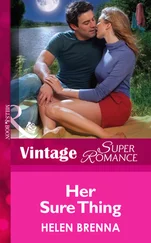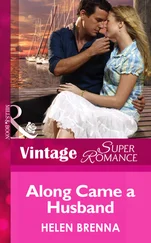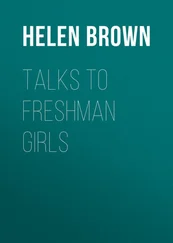Lydia and Katharine tumbled out of their beds when they heard the news and scrambled into their clothes. Jonah was wide awake and wired, having been moved off his favourite sleeping pillow – Katharine’s arm. If we were off on an early morning mission he was determined to accompany us, thrusting himself at the front door, head-butting the panels and meowing urgently. Like clowns in a bullfight, we each took turns diverting his attention so that one after the other we could slip outside on to the verandah.
Last one out, I reminded Jonah he had an important job to do looking after the house and closed the door. As the car backed on to the sleeping street, we gazed up at the living room to see an unmistakable silhouette pressing its nose against the window. Two headlamps of eyes glowered annoyance.
Cameras in hand, we strode through grey hospital corridors. I was half expecting to be stopped by a belligerent nursing sister, the type who used to roam maternity wards keeping a stopwatch on visiting hours. But those old girls had long gone, along with their enema bags.
The hospital was in a pre-dawn coma. Not a rattle of a trolley or breakfast tray to be heard. Our pace quickened as we headed for Room A24. Turning a corner we encountered an elderly Indian man sitting on a chair in the corridor, a small boy perched on his knee. The old man’s face was deeply creased and his eyes rheumy with age, yet he was smiling like the sun. Well into his eighties, he didn’t have many years left but his daughter (or possibly granddaughter) was behind one of the doors tending to a new life that had stripped any sadness from his old age. It struck me then how lovely maternity wards are compared to the other worry-filled floors of a hospital.
Barely able to contain our excitement, we finally found Room A24 and burst in on a charming nativity scene. Though Chantelle looked tired, as did Rob, their smiles were triumphant and tender as we hovered over the tiny bassinette. Under her pink and white blanket Annie was very pretty, her domed head sprinkled with wisps of brown hair, her starfish hands with tapering fingers.
Holding the comforting weight of my granddaughter for the first time, I studied her face and thought of the hundreds of thousands of people who were part of this little human. Some of her features were familiar: her almond-shaped eyes were not unlike Rob’s when he was a newborn, and her cupid-bow mouth could’ve been stolen from Mum. There was fortitude in that face, too – an inheritance from a long line of women unafraid of swimming against the tide.
Entranced by the little face, I could have gone on studying her for hours, but Annie had a queue of admirers desperate to embrace her and begin their own story with her. I kissed her little forehead and with great care transferred her to Aunt Lydia.
‘Be careful how you hold her,’ I instructed. ‘Make sure you support the . . .’
‘Yes, I know,’ said Lydia smiling softly down at her niece. ‘Neck.’
My older daughter never ceased to surprise me. Where had she learnt how to hold babies properly? Perhaps it was an extension of her work with disabled people, or the Sri Lankan orphanage.
As Lydia gazed down at the infant, tenderly stroking her head, I was reminded of my favourite work by Leonardo da Vinci, the cartoon painted around 1500 and on display in London’s National Gallery. Lydia’s expression mirrored the Virgin Mary’s and St Anne’s as they admired the Christ child in the painting.
While the subject of Da Vinci’s work is divine, he used everyday women for models. It was heart-warming to see the surge of nurture experienced by two beauties 600 years ago echoed by a young woman in a twenty-first century maternity hospital. Underneath all the so-called advances, humans haven’t changed.
Flushed with emotion, Lydia rocked and cooed over the bundle. She had such a strong maternal instinct, which was what had driven her to care for the weak and infirm, heal the world. Perhaps one day she’d feel ready to set those impossible ideals aside and settle for a man who understood her, and a child of her own.
Just as I was picturing her conventional future, monk and monastery free, Lydia turned to the exhausted parents.
‘Would you mind if I chant?’ she asked.
Gratitude
Do not judge cats or daughters – if it can be avoided
As Rob and Chantelle adjusted to the rigorous demands of night feeding and deciphering the needs of their tiny daughter, I marvelled at the enormity of parenthood. Impossible to describe to those who haven’t ‘been there’, becoming a mum or dad changes people profoundly. While Annie thrived and grew plump, her parents transformed into serious adults, always putting their daughter first.
Well into her second year of Psychology, Lydia continued scoring great marks. The grey bus made regular appearances outside the house, and she ran fundraisers for the University Buddhist Society. Her life seemed too earnest. The countless hours spent meditating in her room upstairs gave her a disconnected, unworldly manner. I sometimes felt we were sharing the house with a phantom rather than a twenty-five-year-old. My anxiety about her throwing herself into religion was dwarfed by my concern that she might lose her identity. I worried our daughter might float away like a balloon while we watched, helpless. Every now and then I’d hear her chatting animatedly in Sinhalese on the phone. She was still in touch with the monastery.
In the meantime, I was due for my two-year breast cancer check-up. The night before it, I lay awake unable to get back to sleep. It was hard to believe so much time had gone by since the mastectomy and Jonah bursting into our lives. Jonah wasn’t a kitten anymore. He panted when I flicked the fishing rod too fast these days.
From a health perspective, the past two years had consisted of, among other things, pains and pinches I probably wouldn’t have noticed pre-cancer. I’d also endured tiredness that was overwhelming at times. Then again, I’d been fool enough to write a book in the middle of it.
Confronting my own mortality had been more challenging than I’d imagined. Though the thought of my life ending was nowhere near as devastating as the loss of Sam, I was surprised to find a tiny part of me believed, despite all the evidence, I’d live forever. A remnant from youthful days when I never thought about dying, it wasn’t particularly helpful. Life was richer now I understood how swiftly it slips away. Cancer had taught me to live like a cat, savouring every moment.
I’d experienced the unbelievable highs of Rob’s wedding, finding out my book about Cleo had become an international bestseller, and the joy of welcoming a granddaughter into the world. My glass was overflowing.
Driving off to meet Philip at the clinic, I assured Katharine and Lydia that everything would be fine – though I didn’t entirely believe it. With a trusty book of crosswords concealed in my handbag, I parked outside the clinic and caught the lift to the fourth floor. Four’s an unlucky number, according to Chinese superstition. Eight, on the other hand, is incredibly lucky. Feeling queasy as the lift sailed skyward, I silently doubled the four and pretended I was going to eight.
The clinic waiting room featured the same Architectural Digests as two years earlier: ‘Marrakesh Meets Malibu’. One of the reason people live in glamorous homes is to lull themselves into the fantasy that they’re immune from life’s harshness.
Courage, I’ve discovered, isn’t my line of expertise. It was easier to be brave about breast cancer two years earlier when I didn’t know what I was pretending to be brave about.
I grabbed a paper cup and squeezed hot water out of a tap to make peppermint tea. I was more health conscious these days. A red-haired woman in full army kit stepped out of the elevator. An old Greek woman with purple legs eased herself cautiously into a chair next to me. A couple of seats along from me was a disgruntled-looking woman with dyed hair chopped so savagely short she resembled a hedgehog. A young Indian woman came in to have her dressings changed. Breast cancer isn’t choosy. Last Thursday had taken a hundred years off her life, she told the nurse.
Читать дальше




